Hyundai Ioniq 6 deal, affordable Honda and Toyota EVs, Civic and Elantra hybrids: The Week in Reverse

How can you claim up to $7,500 off some new Tesla models at the time of purchase?
Which automaker announced plans to embrace the Tesla charge connector and reignite an offbeat kind of internal combustion engine, all in the same week?
This is our look back at the Week In Reverse—right here at Green Car Reports—for the week ending.
The 2024 Hyundai Elantra Hybrid gets a price hike—and more of a price bump versus non-hybrid Elantra models, although the Elantra Hybrid does now get the larger 10.3-inch infotainment screen. Efficiency-focused Elantra Hybrid Blue models retain the 54-mpg combined EPA rating.
With $7,500 of “retail bonus cash”—a rebate on purchases, not leases–the 2024 Hyundai Ioniq 6 is much cheaper than the Tesla Model 3. Looking at the latest “Highland” Model 3, as priced last week, it undercuts the Tesla by $9,000.
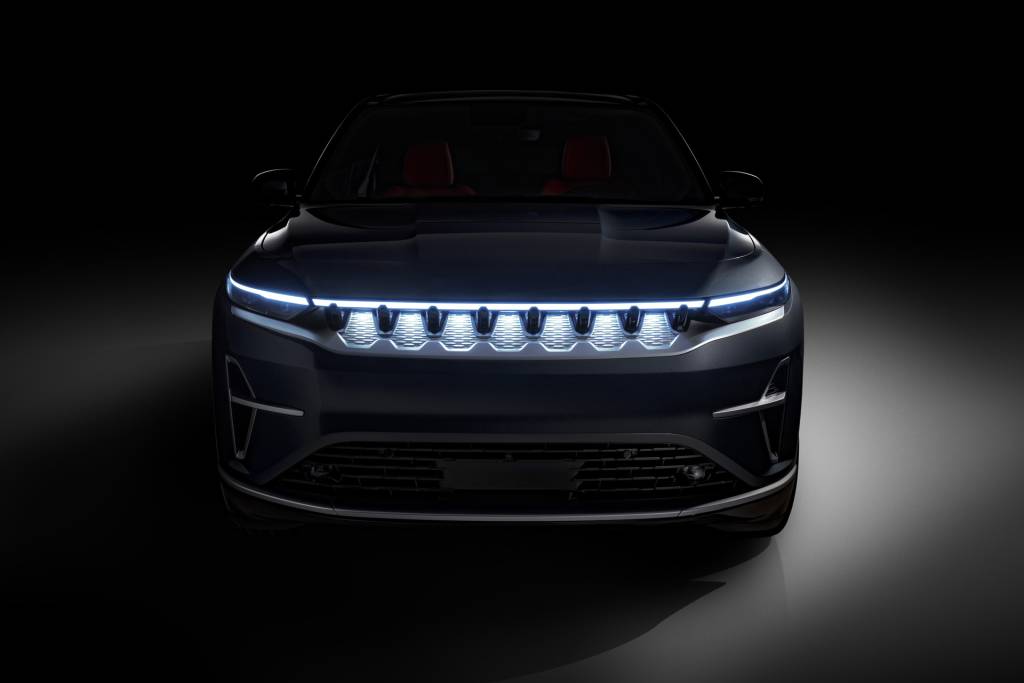
Teaser for 2025 Jeep Wagoneer S
Stellantis provided a first look at the 2025 Jeep Wagoneer S electric SUV, confirming Thursday that it’s right on schedule and set to arrive this fall in the U.S., with other markets to follow.
The 2024 Ford Mustang Mach-E GT will get an optional performance upgrade yielding the quickest acceleration of any Mach-E version yet. A Bronze Appearance Package and Rally model are also on the way, but 2024 Mach-E changes due for the non-GT lineup are yet to come.
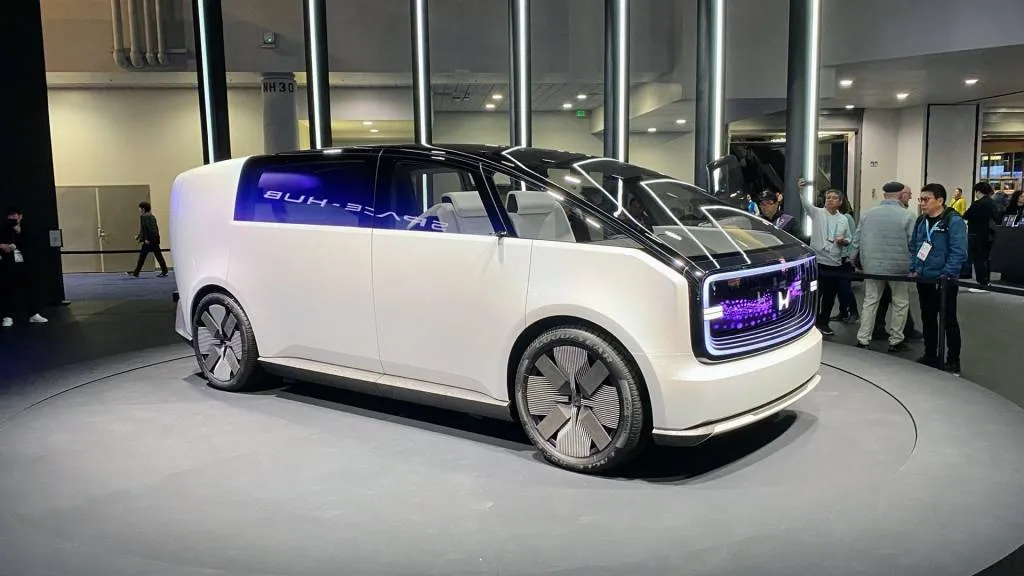
Honda Space-Hub Concept – 2024 CES
Honda may be a late-starter with mass-production EVs, but as communicated last week with the Saloon and Space-Hub concepts and by company executives, it has big plans for later in the decade—including multiple platforms underpinning a unified Series 0 architecture. We rounded up all the themes and details, in 12 things to know about these Honda EVs arriving in 2026.
Set to arrive in summer 2024, the 2025 Honda Civic Hybrid will be much more than a niche model, with the automaker anticipating 40% of Civic sales will be hybrids. Honda says hybrids made up more than a quarter of its total U.S. sales in calendar year 2023.
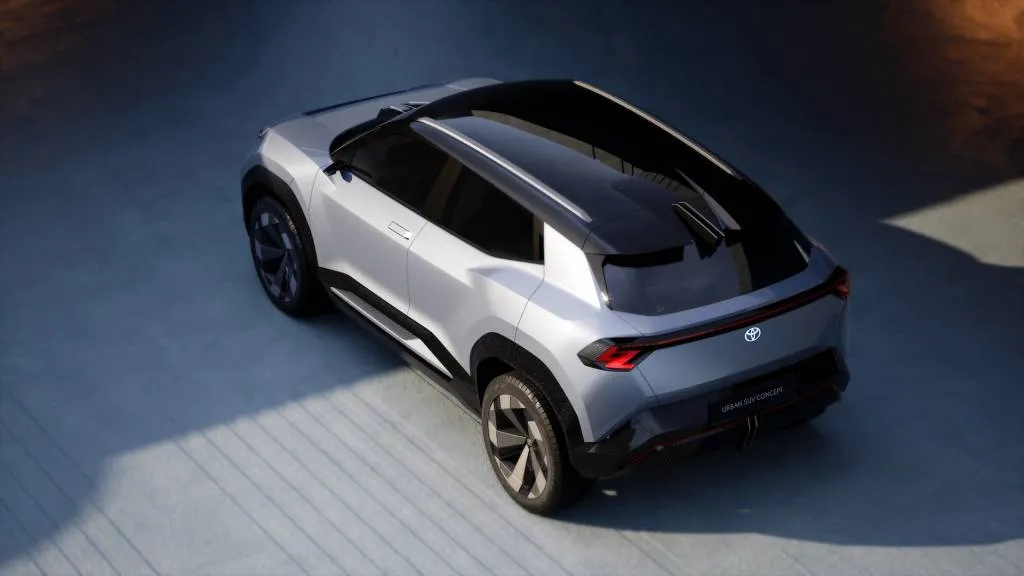
Toyota Urban SUV Concept
And never mind the Nissan Leaf, apparently—or the Chevy Bolt EV. Two automakers this past week, both known for affordable gasoline cars, dashed hopes of seeing more affordable EVs anytime soon. Honda still has no affordable, mass-market EV, and based on remarks from Honda’s global CEO, that’s not coming soon—or an Accord EV or Odyssey EV—but solid-state batteries may enable an affordable small Honda EV by 2030. Toyota also dismisses the viability of an affordable EV—in this case, specific to the European market. Its development boss there recently said that the premium for EVs won’t go away until a “substantial shift in the cost of batteries” occurs—sentiments that parallel those recently made by Honda’s CEO, suggesting an affordable small EV might not arrive until 2030.
Within the span of a few days, Mazda has announced both the adoption of Tesla’s NACS connector for future U.S. EVs, while also committing to the revival of the rotary engine. They’re among many mixed signals from the automaker in recent years on what it sees as its propulsion future, as it works toward a global target of 40% EV sales by 2030
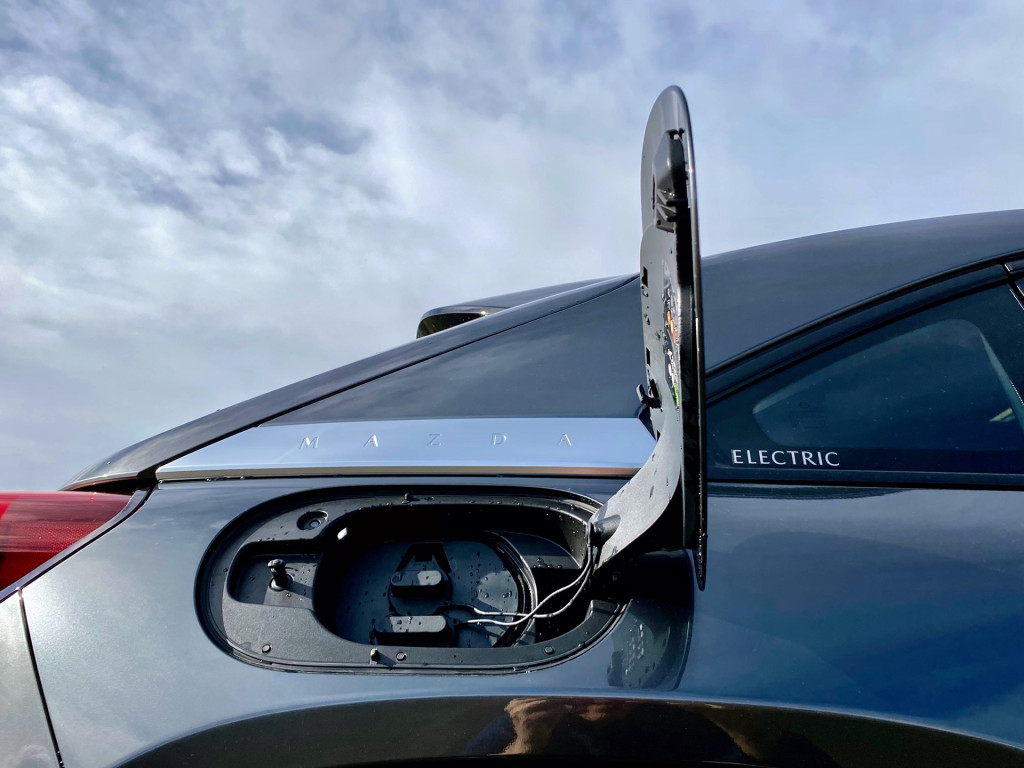
2022 Mazda MX-30 EV
The lineup of Ram ProMaster EV electric van models was revealed Tuesday. These front-wheel-drive vans have a 110-kwh battery pack good for up to 162 miles of range and, with their focus on last-mile delivery fleets and work-van upfits, will rival the Rivian EDV, Mercedes eSprinter, and Ford E-Transit.
In Rivian’s new environmental impact report, it underscores that it’s aiming for EVs with half the carbon footprint, on a lifecycle basis, by 2030.
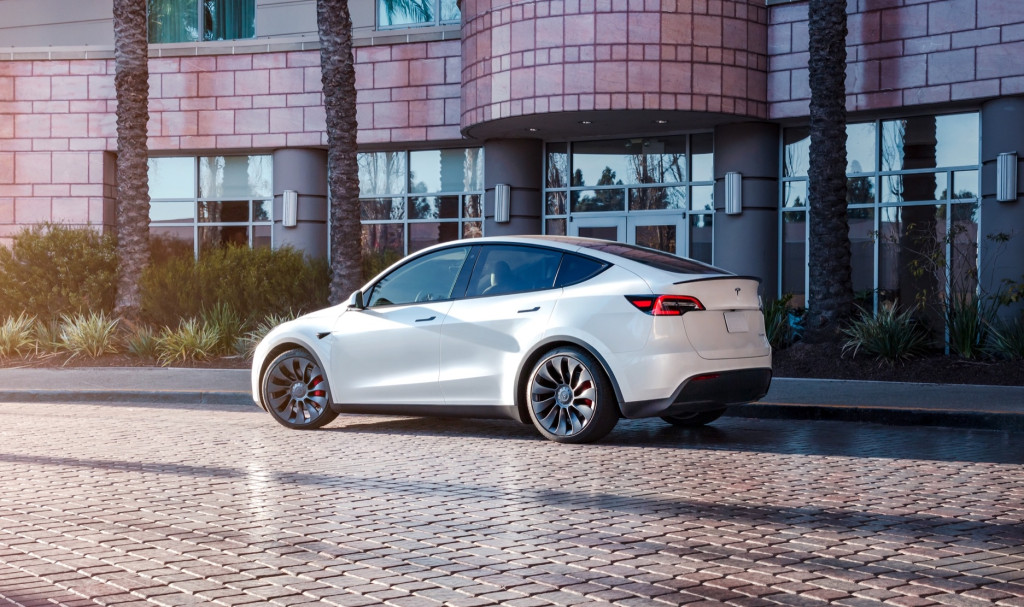
2023 Tesla Model Y – Courtesy of Tesla, Inc.
Tesla has started applying the EV tax credit at the time of purchase—via its own website and affecting the up-front amount buyers will need to pay when buying a new Tesla. Eligible buyers will be responsible for determining eligibility, specifically in light of adjusted gross household income caps. That said, fewer Tesla models now make the cut, due to more restrictions on battery materials sourcing introduced for 2024.
And a recent “study of studies” by an energy-policy advocacy organization, the ACEEE, finds that a shift to EVs will drive the cost of electricity down over the long term. That’s partly because once more people are charging EV on the grid, they’re making better use of it.
_______________________________________
Follow Green Car Reports on Facebook and Twitter